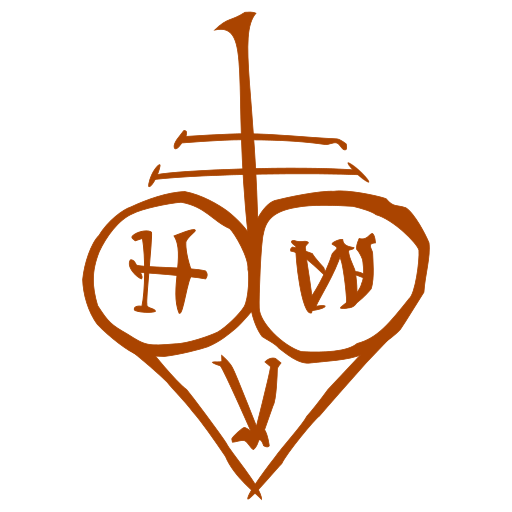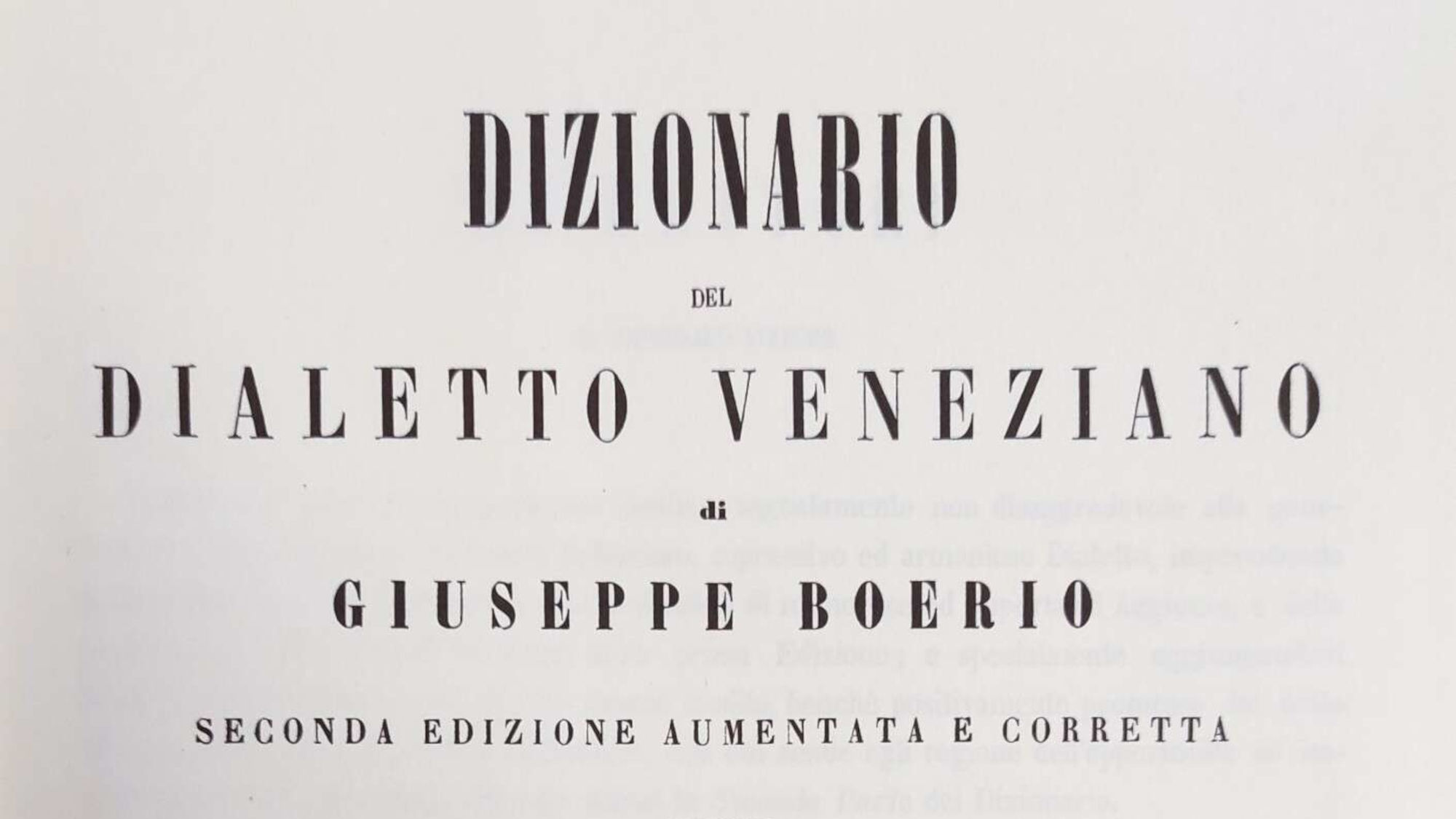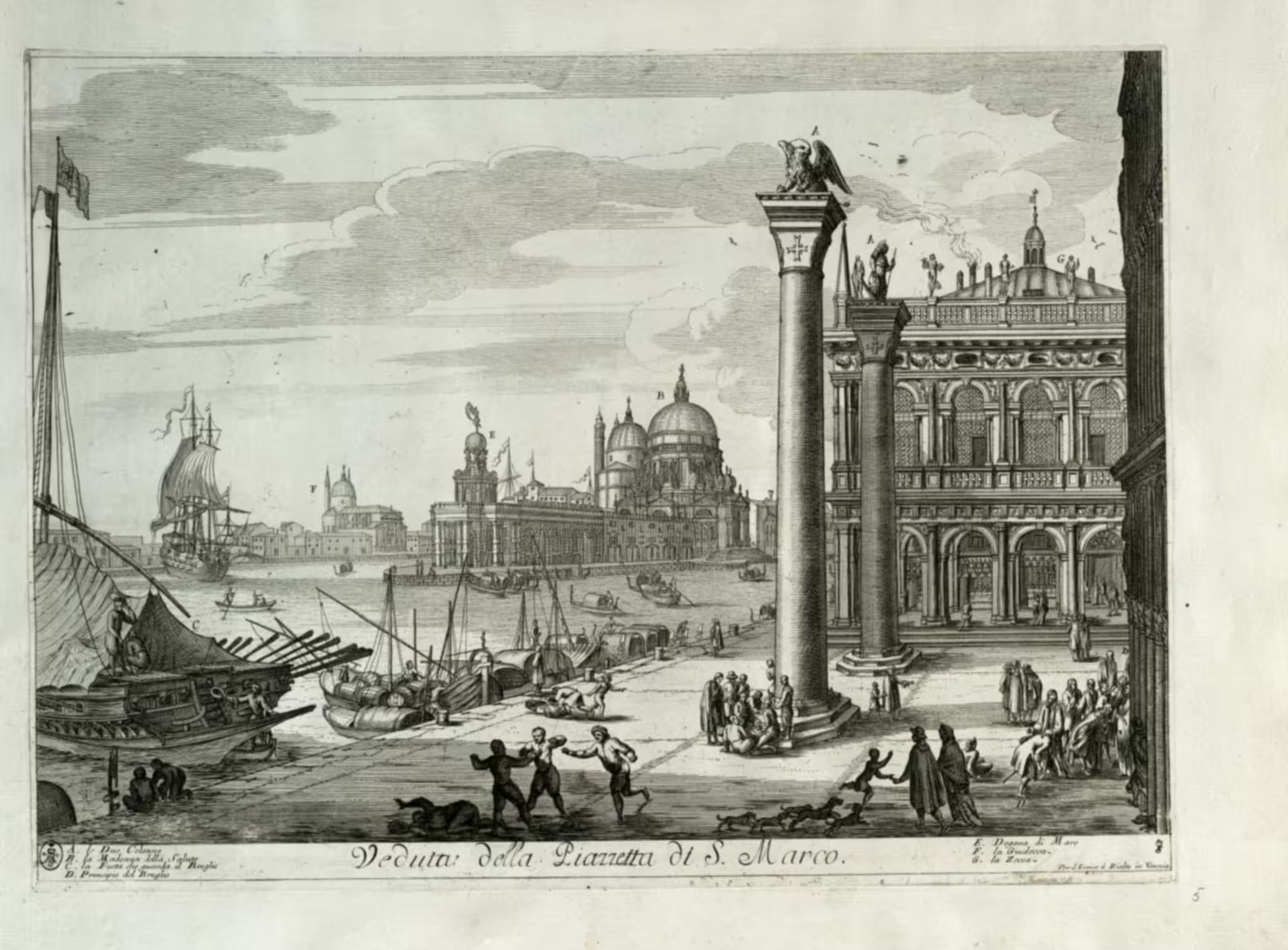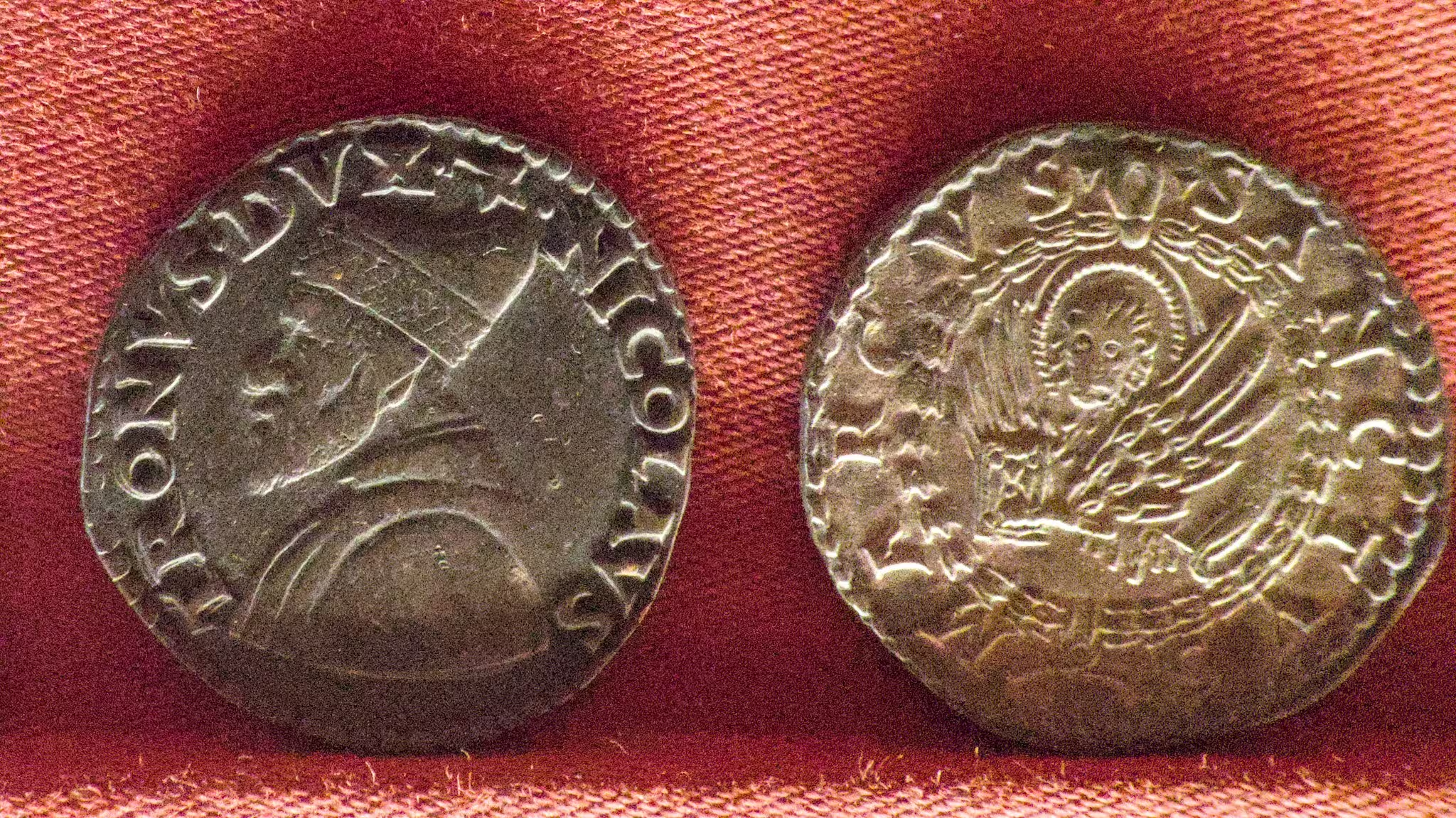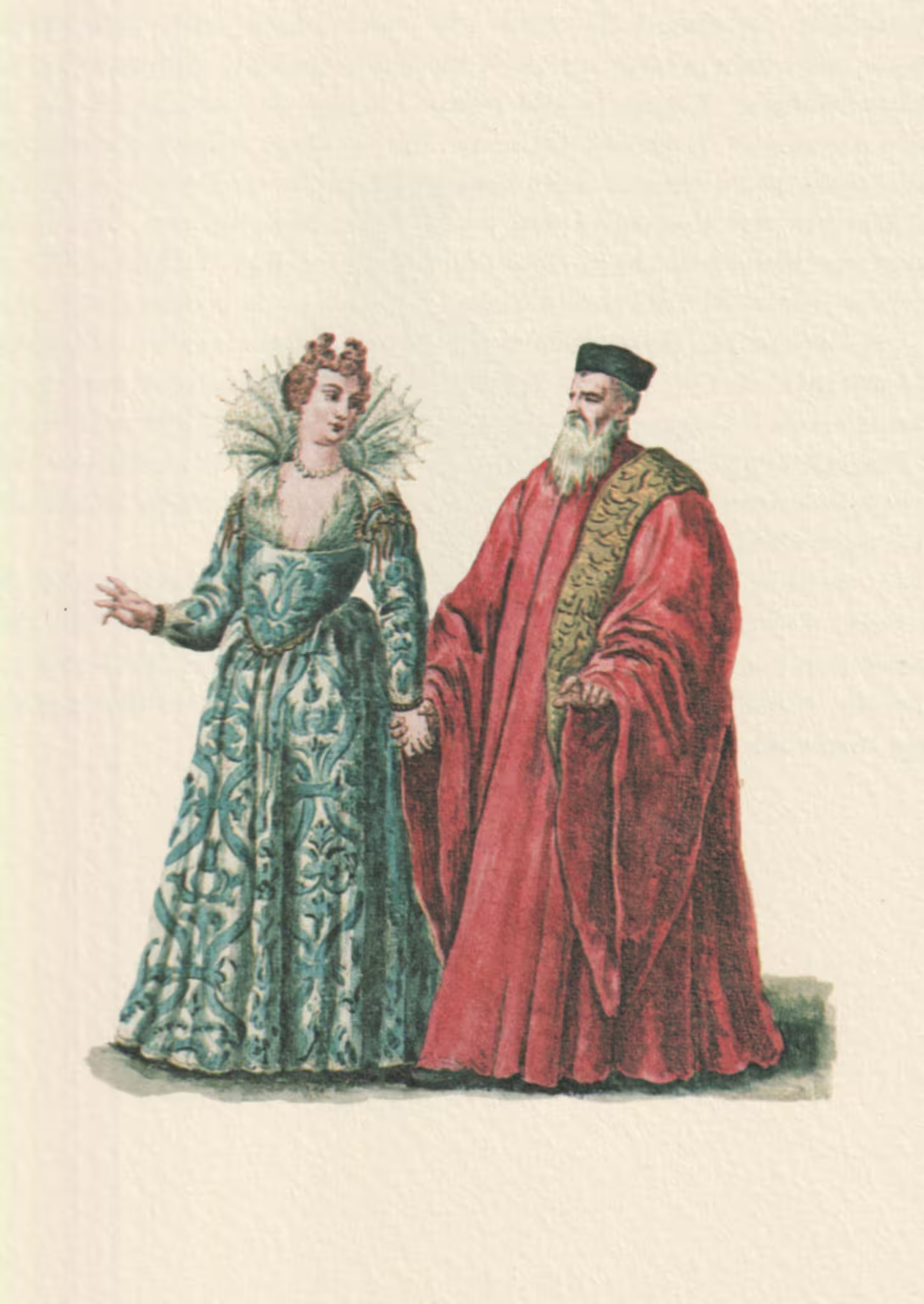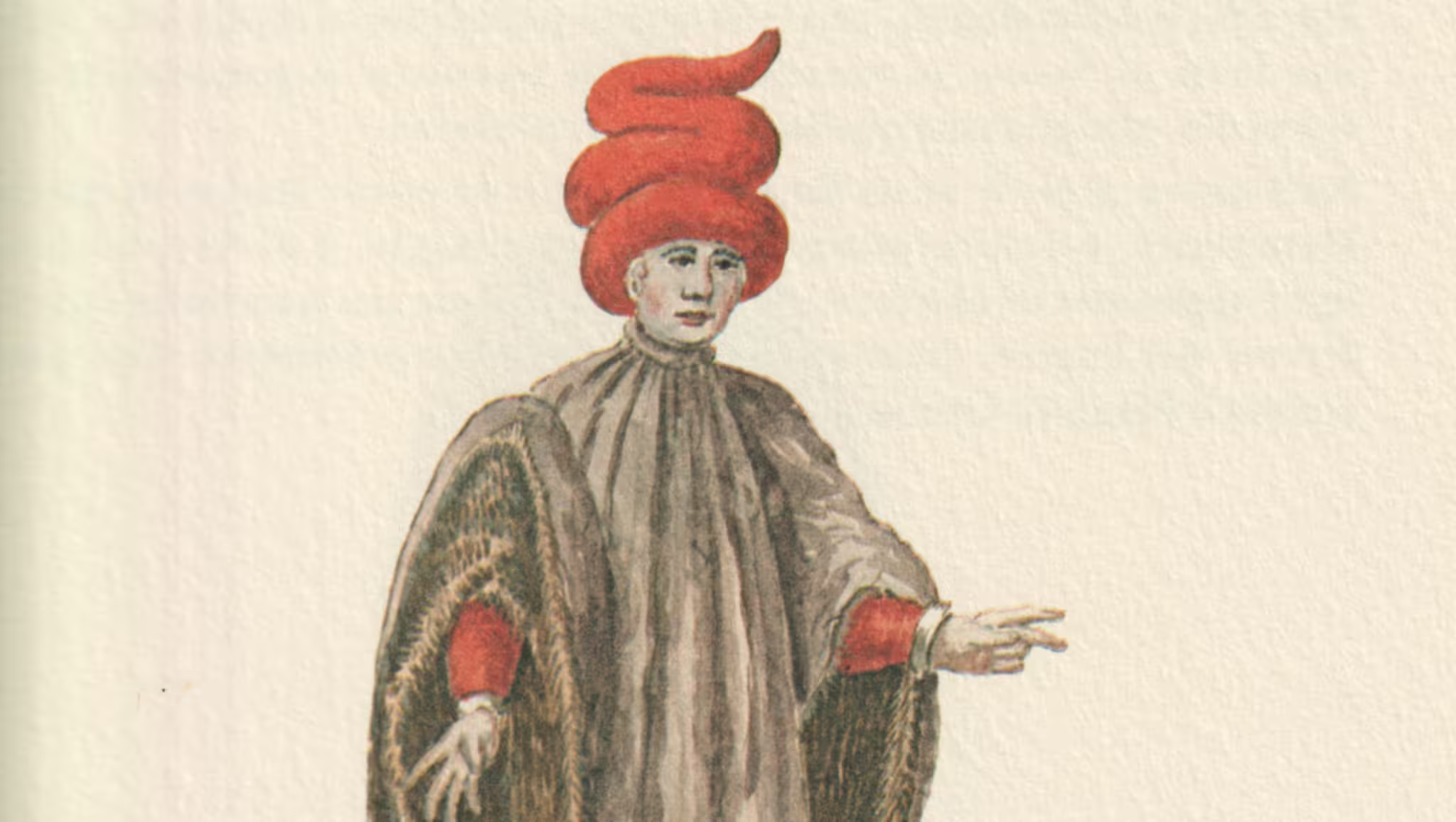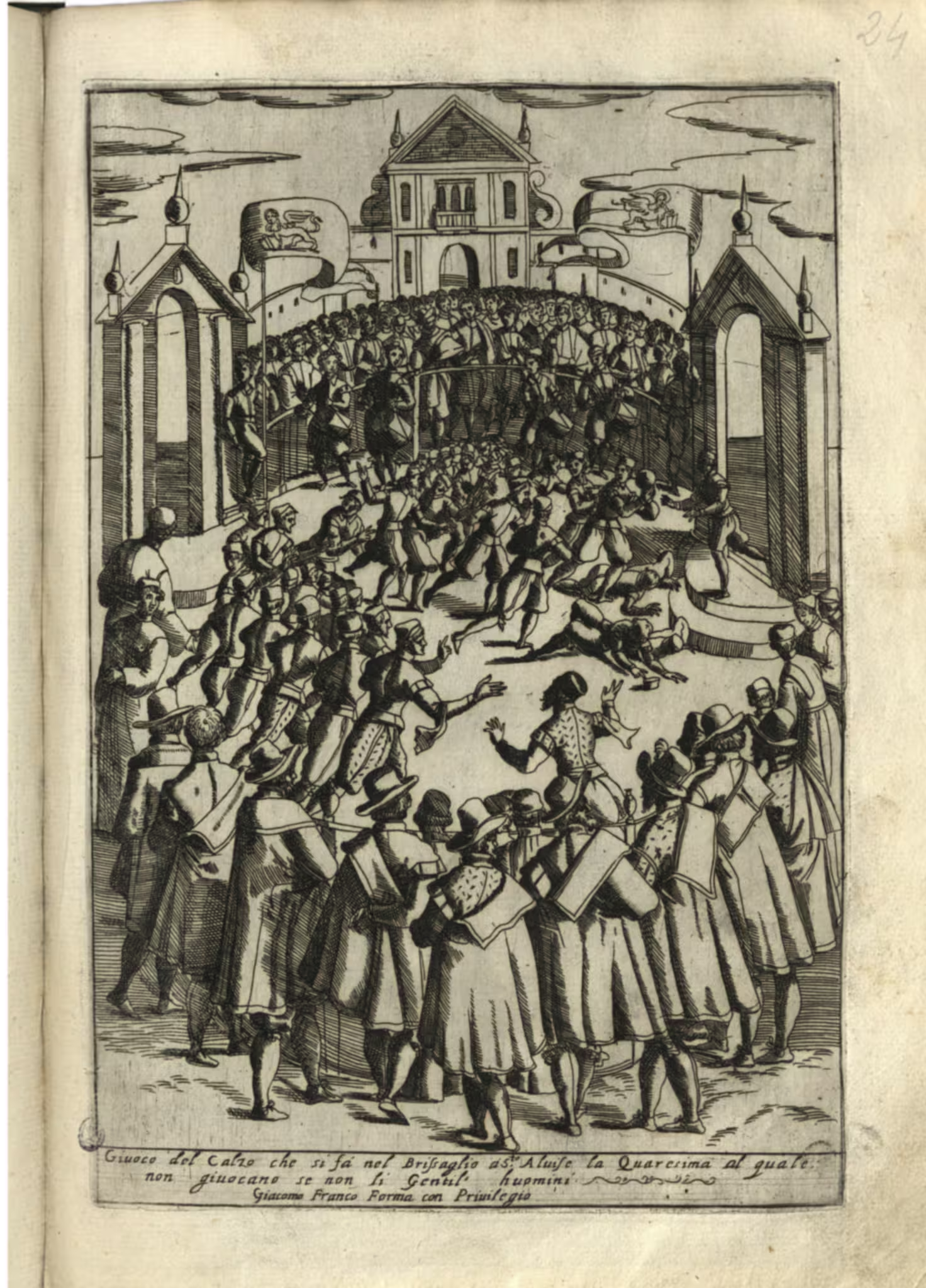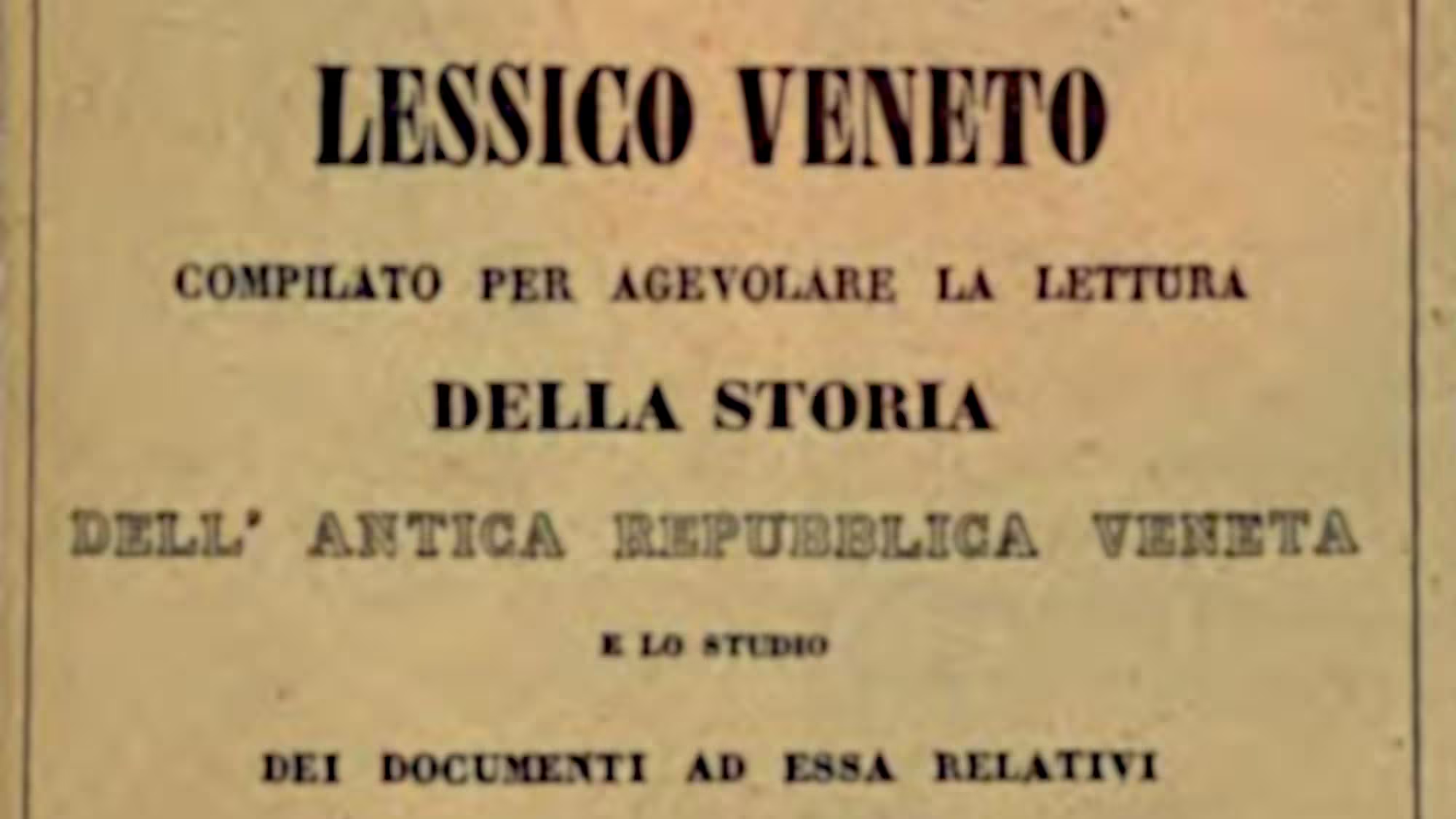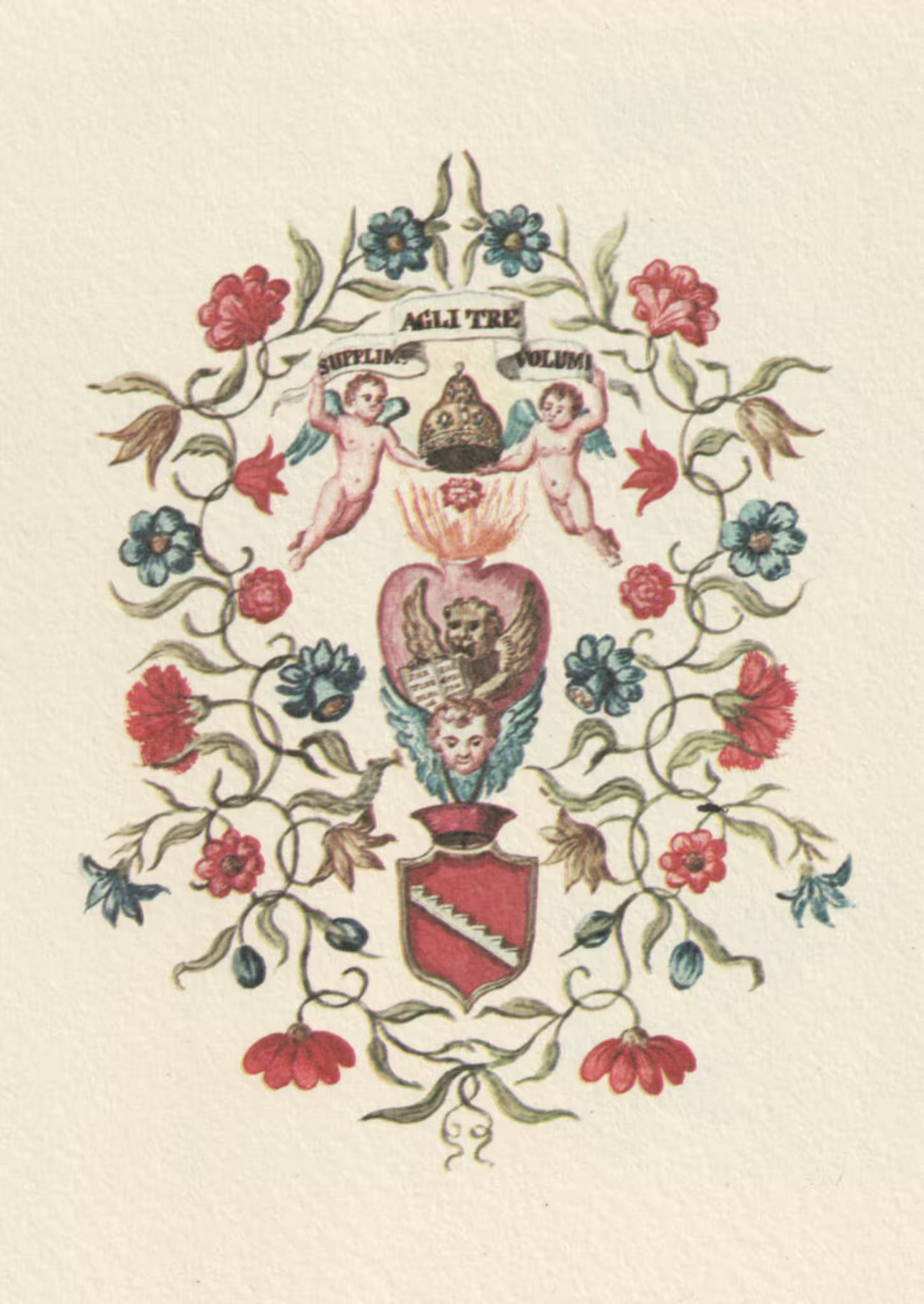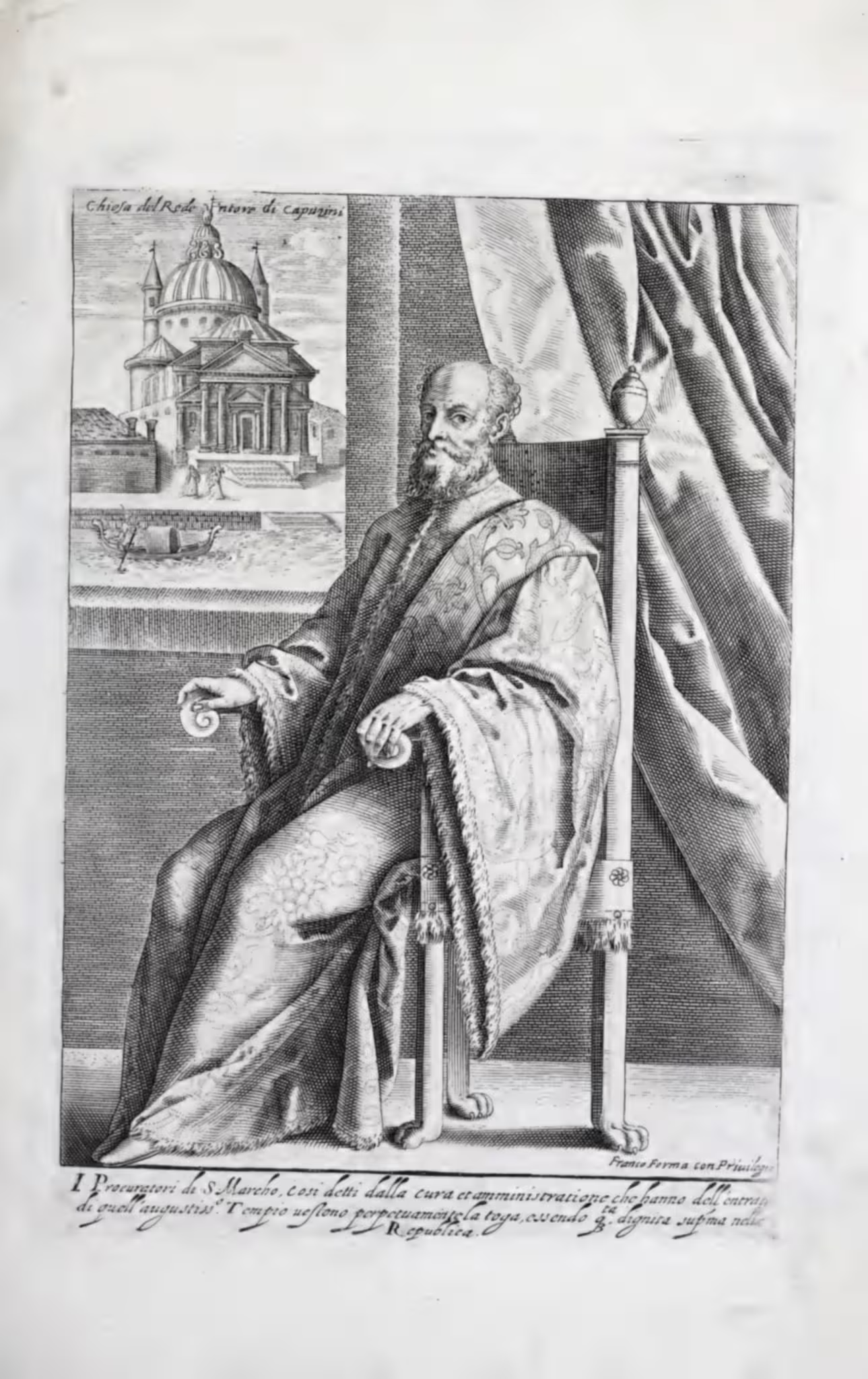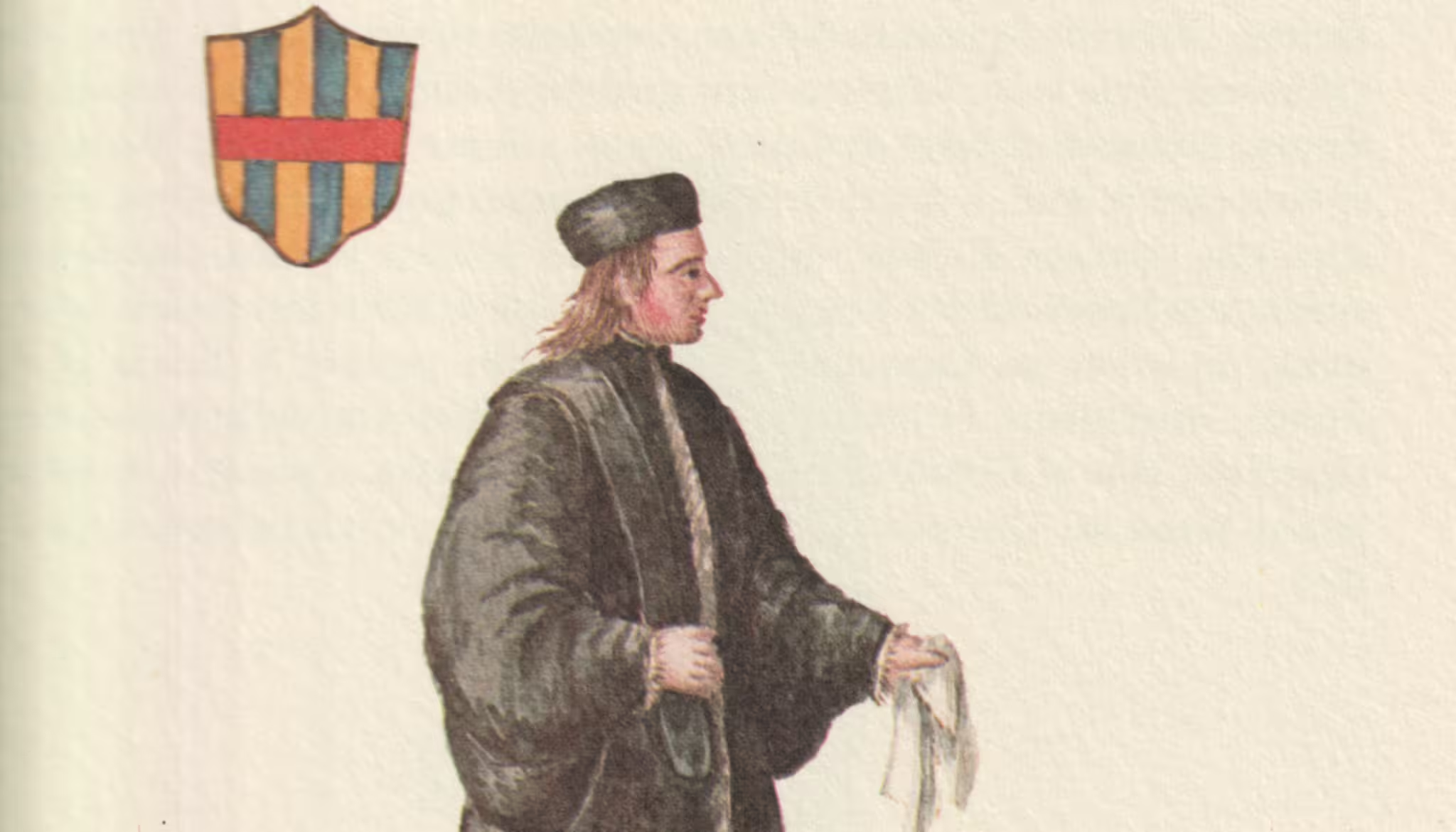Venezia
-
Veduta della Piazzetta di S. Marco — Il Gran Teatro di Venezia — plate 5
“Veduta della Piazzetta di S. Marco” from the “Gran Teatro di Venezia”, published by Domenico Lovisa, c. 1717.
-
Venetian coinage
The Republic of Venice issued a wide range of coins, of many, and changing, denominations, including the ducato, scudo, soldo, lira, and many more.
-
Procuratore, e Cavaliere — Procurator and Cavalier — Grevembroch 1-18
“Procuratore, e Cavaliere” (Procurator, and Cavalier) from the Gli abiti de veneziani (1754) by Giovanni Grevembroch, translated by René Seindal.
-
Giovane in Dogalina — Young Nobleman in Dogalina — Grevembroch 1-32
“Giovane in Dogalina” (Young Nobleman in Dogalina) from the Gli abiti de veneziani (1754) by Giovanni Grevembroch, translated by René Seindal.
-
Giuoco del calzo — Habiti d’huomeni et donne venetiane — 35
“Giuoco del Calzo” from the “Habiti d’huomeni et donne venetiane”, published by Giacomo Franco, c. 1610.
-
Abito — Lessico Veneto
“Abito” from the Lessico Veneto (1851) by Fabio Mutinelli, translated by René Seindal.
-
Grevembroch cover illustrations
The cover pages of each of the four volumes of Grevembroch’s “Gli abiti de venezianii” are quite intriguing.
-
I Procuratori di S. Marcho — Habiti d’huomeni et donne venetiane — 3
“I Procuratori di S. Marcho” from the “Habiti d’huomeni et donne venetiane”, published by Giacomo Franco, c. 1610.
-
Nobile della Casa Trivisan — Nobleman of the House of Trivisan — Grevembroch 1-55
“Nobile della Casa Trivisan” (Nobleman of the House of Trivisan) from the Gli abiti de veneziani (1754) by Giovanni Grevembroch, translated by René Seindal.
